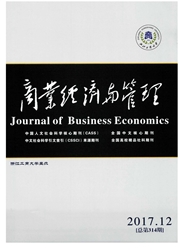

 中文摘要:
中文摘要:
文章基于交易成本理论,对模块化变革引起的交易成本内部化及模块化组织边界变动问题进行了探讨。首先,识别并界定了模块化组织边界,认为模块化组织边界是指依据模块化组织基本架构和主导规则所建立起来的关系网络的界限范畴。其次,基于模块化“竞合机制”,指出了模块化组织交易成本内部化趋势,集中体现为:信息提升强化了组织运行的不确定性、频繁更替成员企业促使了组织内部合作的交易化、规则化约束强化了资产专用性的锁定。进一步地,厘清了交易成本内部化而引起的模块化组织边界变动的实质,即组织会在交易契约与协作契约之间进行二次选择,直到最优契约组合模式的出现。最后,对模块化组织边界变动下的治理问题进行了探索性分析。
 英文摘要:
英文摘要:
In Modular Organizations, associated boundaries based on relationship network are replaced for entitative boundaries based on administrative order. However, as a result of "joint mechanism of competition and cooperation", the trend of transaction costs internalization appears in the Modular Organization, which reflects as follows: Information intensifies uncertainty of organizational operation, frequent rotation of member firms promotes the transaction within a cooperative organization, and standardization strengthens Asset Specificity. It will induce a change of boundaries of Modular Organizations, and the nature of the change is that there will be a quadric choice between transaction contracts and cooperative contracts which will continue until the best combination of these two kinds of contract is reached.
 同期刊论文项目
同期刊论文项目
 同项目期刊论文
同项目期刊论文
 期刊信息
期刊信息
